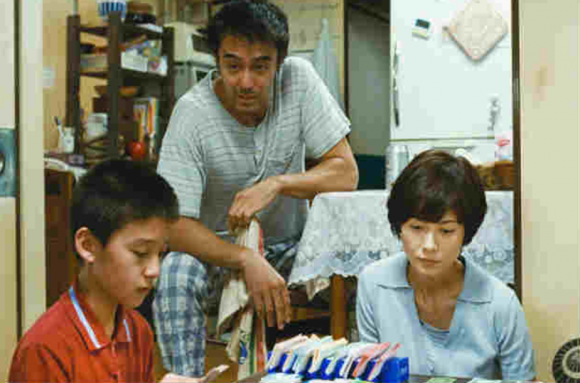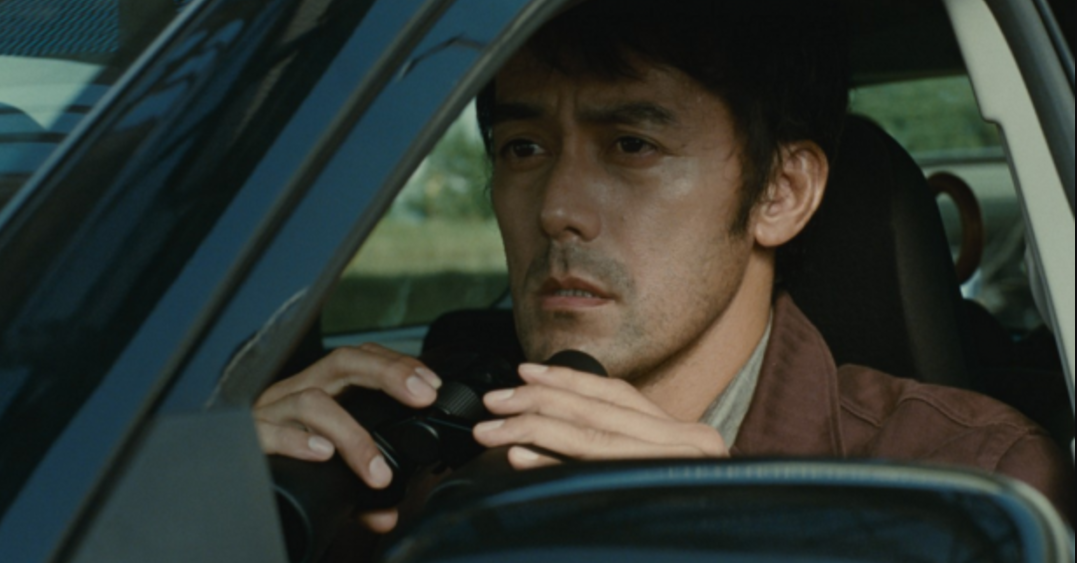 aNewDomain –This is a wonderfully intimate portrait of what we used to call a ‘ne’er-do-well.’
aNewDomain –This is a wonderfully intimate portrait of what we used to call a ‘ne’er-do-well.’
In Hirokazu Koreeda’s After the Storm (Umi yori mo mada fukakuis), 0ur main character is Shinoda Ryota, a middle-aged once-famous novelist (Hiroshi Abe) whose fallen on hard times. He has trouble paying child support because he’s gambled away the small living he makes as a private detective. His mother (Kirin Kiki) and beautiful ex-wife (Yoko Maki) have moved on with their own lives. And Ryota is having difficulty reuniting and bonding with his young son (Taiyo Yoshizawa). At least that’s how it all stands until he, his ex-wife, his mother and the son are forced to batten down for an upcoming typhoon.
Complex emotional dynamics result from this mix but not of the kind we might expect from standard Hollywood fare. There’s no yelling or screaming, no deep and dark secrets suddenly revealed, no last-minute sobbing change of heart.
Instead, writer-director Koreeda has managed to create a layered and sensitive coming together of ordinary people trying to  move forward in the face of ordinary but — to them — seemingly insurmountable and complex odds.
move forward in the face of ordinary but — to them — seemingly insurmountable and complex odds.
The adjectives that came to my mind while watching were melancholy, bittersweet, funny and sensitive. It is that beautifully produced and acted.
The acting is universally excellent and natural. We get the sense that these are real people.
The filmmaker’s art is also on display. While much of what we see is incredibly mundane — bus and train travel, people walking down the street, sitting down at a table to talk, making lunch and so on — constant camera movement and occasionally very quick editing give it a sense of reality.
And it’s that kind of photographic mastery that overcomes what might otherwise have been an almost claustrophobic emphasis on conversations that take place in the grandmother’s small apartment.
As in real life, not all problems in After the Storm are completely resolved. We are left hanging in several cases. That’s realism. And that’s reality.
See this movie if you’re interested in a real “slice of life” comedy/drama.
Here’s the trailer:
For aNewDomain, I’m Dennis D. McDonald.













